Search
Search Results
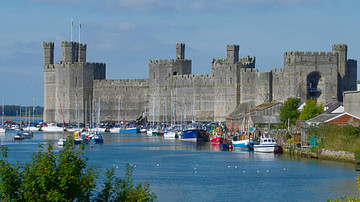
Definition
Caernarfon Castle
Caernarfon Castle (aka Caernarvon) is located in North Wales and was first built from 1283 CE by Edward I of England (r. 1272-1307 CE) to help, along with several other major castles, control the newly conquered area. As the administrative...
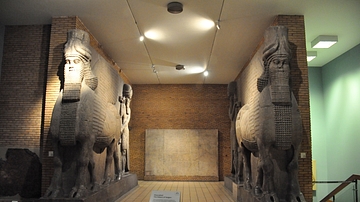
Image
Human-Headed Winged Bulls and Genies from Khorsabad
A pair of human-headed and winged-bulls (lamassu), stood on either side of a gate at one of the citadel walls at Khorsabad. Two human-headed and winged protective spirits or genies stand behind the bulls; those divine figures are about to...

Image
Shang Double-Ram Zun
This container, presumably for wine, is flanked by the heads and forequarters of two rams. The rams are very lifelike and this realistic style of decoration suggests it might have been made in Hunan province. Shang Dynasty, 13th to 12th century...
![Double-Faced Female Figure of Astarte[?]](https://www.worldhistory.org/img/c/p/360x202/10079.jpg?v=1655485985)
Image
Double-Faced Female Figure of Astarte[?]
This limestone head probably represents the goddess Astarte. Some of the ivory inlays still remain within the eye sockets while holes on the collar were probably for inlay decorations. Four such heads were discovered together in 1968 CE and...
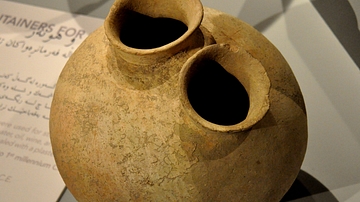
Image
Double-Mouthed Bulbous Jar
This bulbous jar dates back to the early Bronze Age, 3150-2900 BCE, Mesopotamia, Iraq. (The Sulaimaniya Museum ,Iraq).
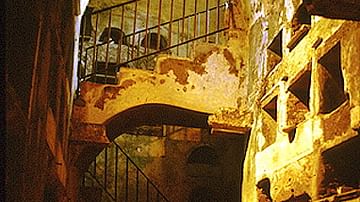
Image
Columbarium 3 at Vigna Codini: View of Double Staircase
This largely first-century CE columbarium in Rome, discovered in 1852 CE, was once lined with marble. It is very 'up-market' in that the epitaphs are all preoccupied with status, even though the deceased are slaves and freed slaves. It was...
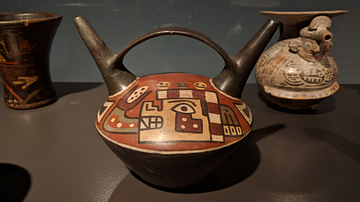
Image
Double-Spouted Wari Vessel
Pottery vessels from the Wari Civilization. Peru, 7th to 10th century CE. Fired clay.
Exhibited at Museum Rietberg, Zurich, Switzerland.

Image
Nazca Double-spouted Bottle with Chilli Peppers
Bold designs on early Nazca vessels were naturalistic and representational, featuring motifs from land, sea, and air. Plants and animals were abundantly illustrated, most often on bottles and bowls. Figures are painted with simple outlines...
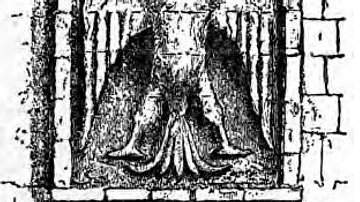
Image
Saladin's Eagle
Sketch of the original "Eagle of Saladin" of the Cairo Citadel, Cairo, Egypt. 1898 CE
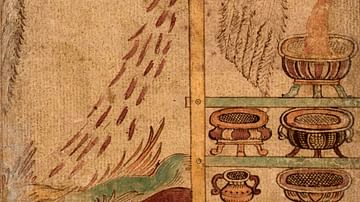
Image
Odin as an Eagle which Creates Mead
An 18th century CE Icelandic manuscript illustration showing the Norse god Odin in the guise of an eagle which produces the drink mead. (Árni Magnússon Institute, Iceland)